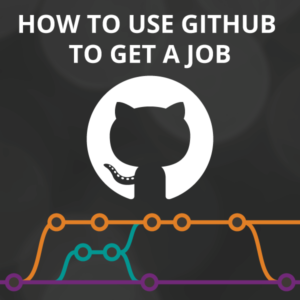 If you write or test code, then you’re very likely to know GitHub. Whilst being an excellent open source library for the programming community, it can also be a fantastic self-marketing tool.
If you write or test code, then you’re very likely to know GitHub. Whilst being an excellent open source library for the programming community, it can also be a fantastic self-marketing tool.
Recruiters are able to see what projects and programming languages interest you and compare to their clients’ requirements. By looking at your current work and contributions, Hiring Managers can then get further evidence of your skills and how you apply them. These extra insights can be invaluable when deciding if you’re a good fit for the projects they currently have on offer.
GitHub was never designed to be a platform for recruitment, so if you want to use GitHub as a means to improve your brand and attract the right employers, then you’re going to have to do a little work.
With that in mind, read on for our guide on how you can use GitHub to get a job.
Improving Your Brand
Your GitHub account can be a powerful tool for attracting the right attention. Having a professional looking GitHub account and a professional looking user name, alongside an introduction explaining which programming languages and projects you’re interested in, can make all the difference. For example, if a Recruiter has a role for a client who designs JavaScript-based games, they’ll likely prefer profiles dominated with this type of code.
Much like LinkedIn, a Recruiter or Hiring Manager can use GitHub to gain an overview of your community and industry reputation. Users with large followings and repositories with a high number of stars will usually be well-regarded by their peers. This makes building your following well worth the time. One of the best ways to improve your reputation is by getting involved in and contributing to open source projects.
It’s unlikely that a Recruiter is going to trawl through your code in an attempt to understand it, but that doesn’t mean you shouldn’t keep it clean and tidy. Whereas a Recruiter will use GitHub as a means to source candidates, a Hiring Manager will use it to check your code further down the recruitment process. So having well-written README files, short descriptions and defined commits can allow Hiring Managers to understand your thought processes, your grasp of a problem and your plan of attack.
It’s also worth mentioning that including your side projects in your public repositories can be a great way of showcasing other skills and interests not related to your main field of expertise. However, remember that keeping your GitHub up-to-date and clean is considered good practice. For example, if you’ve forked a project and had a fix implemented upstream and no longer need it, consider deleting it. If you cloned a repository only to not contribute to it, consider deleting it. After all, your GitHub is your public portfolio, so curating your work and showcasing the code you’re proud of can be crucial to helping you get your next job.
Improving Your Scope
The great thing about GitHub is that it can work both ways. Not only can a Recruiter or Hiring Manager learn a lot about you, but you can use it to identify employers who are working on projects that align with your own interests. The main tip from our candidates who have used GitHub to their own advantage was to follow repositories that interest you.
These repositories contain a full break down of a project, including what percentage of different programming languages make it up. This can allow you to identify repositories written in languages you want to focus on.
On top of that, repositories also contain a list of active contributors and whilst not every user lists their employer, they will tend to follow their colleagues. So from a quick glance at their connections, you may be able identify projects and coding languages employers rely on. This allows you to discover the demands of prospective employers and strengthen your network, which can benefit you throughout your career.
Summary
A good Recruiter or Hiring Manager will always do their homework on potential candidates before considering moving them to the next step. Whilst not designed to be your CV, GitHub is still a fantastic way to market yourself as a valuable asset. When used in this way, it can showcase your technical skills, your relevant interests and your ability to communicate and collaborate. Building a good GitHub portfolio can take time so we recommend starting as early as possible.
If you’re looking for more insight into what a Recruiter looks for in a GitHub profile, feel free to get in touch with one of our specialist IT recruitment experts here at RWA.

